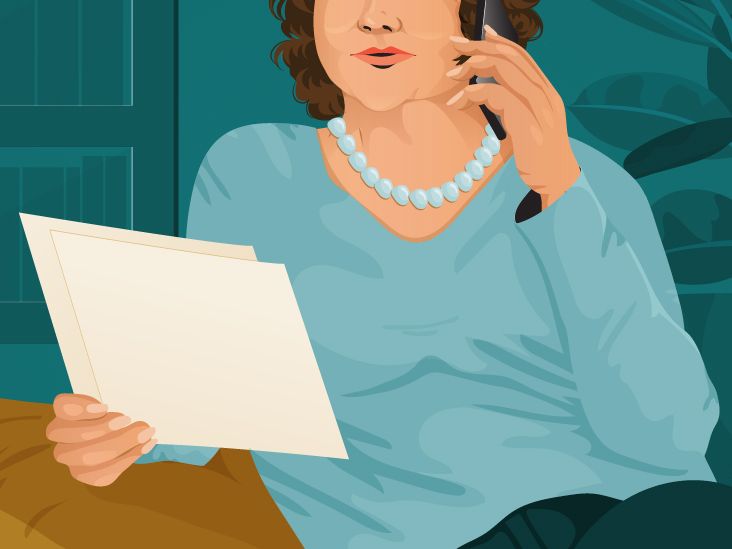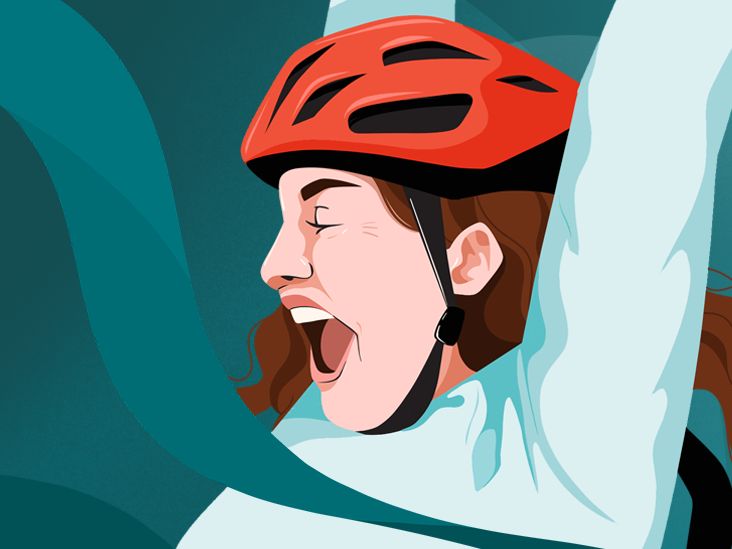
Such an ordinary moment in an ordinary day, that turned out to be anything but. While getting ready for bed, my hand brushed over the top of my right breast and landed on a rather large lump.
Living with multiple sclerosis (MS) and migraine, I made it my business to stay in tune with my body. That lump hadn’t been there long, that’s for sure. I quickly checked both breasts and found nothing else of concern. Most likely a harmless cyst or blocked duct or something.
After all, I’d had a mammogram just 13 months earlier, and there was no history of breast cancer in my family. Cancerous breast tumors don’t just pop up like that, do they?
In recent months, the frequent MS relapses that plagued me for years had all but disappeared for reasons unknown. I’d celebrated my 51st birthday just a few weeks earlier and was enjoying an unprecedented run of vibrant health.
So, breast cancer? Not likely.
Not one to panic over some random lump, I put it out of my mind. So far out that I forgot all about it by morning. That is until I rediscovered the ominous thing while showering.
Left to my own devices I would have waited a few days to call the doctor in the hope that it would go away. But my husband, Jim, had seen me through years of health issues and if he knew about this lump, he’d want immediate action.
It was a Thursday morning, so I called my primary care provider (PCP) before broaching the subject. What a stroke of luck that I landed an appointment for Monday. The lump would probably be gone by then anyway, I thought. That afternoon I approached Jim with a don’t-freak-out-it’s-no-big-deal preamble. Like that ever works.
He wanted to see for himself, which was no problem since the lump was disturbingly easy to locate. I’ll never forget the look on his face. Despite the calm exterior, his internal warning system went full throttle. Upon his insistence — and persistence — the Monday appointment turned into a tomorrow appointment.
We stepped into that space where time seems to move at lightning speed and in slow motion. A discombobulating sense of everything and nothing happening all at once. There was no mistaking the look on my PCP’s face as he examined the lump. It wasn’t one of those reassuring “not to worry” looks. It was a look of grave concern.
Within the week, I was gowned up and awaiting the results of my mammogram. A nurse inquired about my schedule, explaining that the radiologist wanted an ultrasound ASAP. None of this bore any resemblance to my experiences with MS, where healthcare seemed to move at a snail’s pace.
Schedule be damned. I could hear the alarm bells ringing.
A few hours later, the ultrasound complete, I sat across from the radiologist. Behind him were images of my breasts. Big mass at 12 o’clock on the right breast. Smaller mass at 10 o’clock.
He carefully explained his findings, using the word “malignancy,” but not the word “cancer.” He urged immediate biopsies, getting me on the schedule for the next day. The dizzying pace did not bode well.
A breast biopsy is by no means pleasant, but it had to be done and I felt like I was in good hands. During the procedure, I caught the almost imperceptible moment when the doctor’s eyes met the nurse’s. It was the same knowing look my PCP had the week before.
Their eyes told the tale they could not yet say out loud.
As I made my way toward the outer waiting room, a nurse handed me a pink carnation. Would you believe it? It was Breast Cancer Awareness Month. And I was exceedingly aware.
When you’re waiting for biopsy results, 5 days is an eternity. You have to compartmentalize the questions and the dread as you go about your life. It still seemed unfathomable that anything that bad could be happening inside me when I felt so healthy.
We were supposed to return for the results the following week. But my PCP got them first and called with the news.
I stood in my kitchen, lost in a swirl of words like malignancy, surgery, and chemotherapy and phrases like “you’ve got a tough fight ahead of you.”
The only word he didn’t say was “cancer.” Why would no one say the word? I needed someone to say it before I could fully accept it.
“You’re saying it’s cancer?” I finally asked.
“Yes,” he told me.
Well, that’s it then. No more hoping it was all some kind of mistake.
The next day we went to the diagnostic center at the appointed time. Things weren’t running smoothly, and it took a while for them to figure out what to do with us.
A new doctor, obviously distracted and completely unprepared, scanned some notes. “You have a malignancy, and it’s not good,” he said with all the nonchalance in the world. He pointed to a list of surgeons tacked to the wall, telling us we’d need to pick one.
His mission complete, he left us with a nurse. The nurse rubbed her forehead. “You don’t see triple-negative very often.” The significance of that statement was lost on us that day.
For Jim and me, there was no further delay in accepting this new reality. It was undeniable, and we were ready to take the next steps. Practical steps, like confirming a surgeon and an oncologist. And emotional steps, like telling people.
Like many Americans, Jim and I lived apart from family. Kids. Parents. Siblings. All somewhere else. Thus far, I was steady as a rock. But telling your college-age daughter you have breast cancer — and doing it by phone — was gut-wrenching. Repeating this with my sons wasn’t any easier.
Within a few emotionally exhausting days, we’d told those closest to us. No longer contained to our little twosome, cancer seemed to grow its presence.
The breast surgeon laid the biopsy report on the table and wrote the words “triple-negative.” It means the cancer tested negative for estrogen receptors (ER) and progesterone receptors (PR). It also tested negative for a protein called HER2.
Triple-negative breast cancer (TNBC) doesn’t respond to therapies that target those characteristics, so there are fewer treatment options. Compared with other types of breast cancer, the recurrence rate in the first few years is higher, and the overall survival rate is lower.
The surgeon explained that the second, smaller tumor was benign. But based on the size of the larger tumor, we were looking at a minimum of stage 2 and possibly stage 3 cancer. Her main concern was that the tumor may have penetrated the chest wall.
A lumpectomy was not an option. She stressed that this was not a slow-growing cancer that could wait. We had to be as fast and aggressive as the cancer was.
The surgeon told me I was already a survivor. Visions of headscarves and pink ribbons danced in my head.
My mastectomy would take place just shy of 1 month after I first discovered the lump. In preparation for surgery, we tidied, ran errands, and stocked the fridge. There was bloodwork to be done, and I needed a chest MRI. There’s nothing like a to-do list to keep you occupied.
I was working part-time in a funeral home, so the topic of death was fairly common for us. We talked about this at length and finalized our wills for good measure. I wrote a brief love note to Jim and tucked it into a drawer. Just in case.
I was about as ready as one could be to have a breast removed.
Thank goodness for anesthesia. Surgery was over before I knew it. I went home the next afternoon, bandaged and with surgical drainage tubes hanging out of my chest. A few days later it would be my job to remove the bandages.
There’s no way to prepare yourself for that moment.
The right side of my chest was shockingly flat, despite the swelling. A long scar led to a rather concave area under my arm, where my lymph nodes used to be. It took a few minutes for my brain to process the absence of my breast. But all in all, the result was better than I expected.
The surgeon removed the tubes 2 weeks later. I chose to skip reconstructive surgery, in favor of a prosthetic breast. That meant I was done with surgery, and my chest could continue to heal. I have never regretted that decision.
The post-surgical biopsy confirmed that the tumor was grade 3, the most aggressive grade. It was also positive for lymphovascular invasion. That meant there was a chance that the cancer had entered the lymph or vascular system.
Another scary bit of news was that there was only a hair’s width left between the tumor and my chest wall. That rush to surgery may have been a lifesaving move.
There was other good news, too: My surgical margins were clear. My lymph nodes were clear. And it was stage 2, not stage 3 cancer.
My oncologist made it clear — treating TNBC is far more challenging once it spreads or recurs. The tumor was gone, but we had to address any wayward cancer cells that might be looking to set up shop. So, the next step in my treatment plan was chemotherapy.
What I wish I knew at the time was that my treatment plan was just that — a plan. You can’t anticipate how your body will react to chemotherapy. You get bloodwork before each session to see if your body’s up for it. Poor bloodwork here and there causes treatment delays and makes the chemo timeline that much longer.
After 16 rounds of chemo, I moved on to radiation therapy. That was 5 days a week for 6 weeks.
Through 10 months of treatment, I experienced many of the side effects one would expect, but certainly not all. I managed to stay relatively active and involved, but I’ll admit that many days passed in a blur.
If I could offer some advice here, it would be to focus on shorter timelines. It helps to think about it in terms of getting through one treatment at a time — 1 week at a time.
The day of my last radiation treatment marked the end of active treatment. I walked out with a “diploma” declaring that I had officially graduated.
To say that this came as a relief would be an understatement.
But it wasn’t really over. There were more medical appointments on the calendar. And the side effects didn’t resolve overnight — my body still had some major recovering to do. We would also have to monitor for recurrence while trying not to obsess over it.
At that point, it was too soon for my doctors to call me cancer-free. But they had some good advice for me: Assume that you are. We’d done everything there was to do. It was time to move forward.
How do you transition from lifesaving treatment to some sense of normalcy? Baby steps.
It’s been 12 years since I first found that lump. I still see an oncologist once a year, and these days, they do call me cancer-free. For that, I am forever grateful.
Finding a lump is no cause for panic, but please don’t ignore signs of breast cancer. Each year in the United States, more than
If it happens to you, it’ll no doubt come as a gut punch. Here’s the thing: everyone’s circumstances are different. I can tell you my story, but I wouldn’t presume to tell you how to handle a breast cancer diagnosis.
Here’s my two cents:
Having a positive attitude will likely serve you well. But at the same time, it’s just as okay to express frustration, anger, or sadness. You’re a whole person and having cancer doesn’t change that. This is no time to ignore your true feelings.
Through it all, spend time with the people you love. And enjoy life’s simple pleasures. It’s good medicine.
If you’re struggling, ask your oncologist for information on breast cancer resources and support services in your area. You don’t have to go through it alone.
More from Ann Pietrangelo:
Ann Pietrangelo is freelance writer and author. Through her books No More Secs! Living, Laughing & Loving Despite Multiple Sclerosis and Catch That Look: Living, Laughing & Loving Despite Triple-Negative Breast Cancer, she shares her experiences in the hope that others will feel less alone in their health struggles. Learn more at her website.



